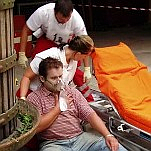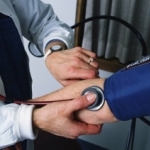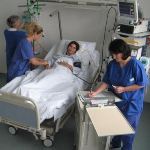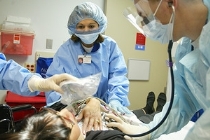 Caring for patients with hypertension
Caring for patients with hypertension
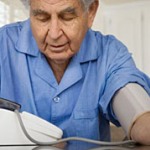
In order to properly care for patients with hypertension and to plan the nursing process in a timely and competent manner, we will analyze the definition of the disease itself. So, hypertension is a disease accompanied by such a pathological condition as hypertension or hypertension.
Arterial hypertension or hypertension is an increase in blood pressure, which is caused by non-natural reactions of the body to certain physiological situations (stress, heat, somatic disease). With arterial hypertension, there is an imbalance in the systems responsible for maintaining blood pressure within the normal range.
According to the recommendation of the WHO (World Health Organization), high blood pressure is considered to be blood pressure from 140/90 mm Hg. Art. Hypertension is a disease, the leading symptom of which is a tendency to arterial hypertension. Risk factors for developing hypertension are considered to be:
- genetic predisposition;
- chronic stressful situations;
- frequent heavy physical activity;
- the absence or the very minimum of physical activity;
- psychological trauma;
- unbalanced diet (including increased consumption of table salt);
- alcohol abuse;
- smoking;
- overweight and obesity.
Hypertension until recently was considered a disease of the age of 40 years. However, in recent years, hypertension, like other cardiovascular pathologies, has become much younger and is quite common in young people (up to 30 years old).
Stages of hypertension
I stage - unstable increase in blood pressure to 140/90 - 160/100 mm Hg. Art., maybe for several days in a row. Blood pressure levels return to normal after rest. However, recurrence of the rise in blood pressure is inevitable. There are no changes in the internal organs in stage I GB.
Stage II - blood pressure level from 180/100 - 200/115, there are fixed changes in internal organs (often - left ventricular hypertrophy, retinal angiopathy). The level of blood pressure cannot normalize on its own, hypertensive crises . At this stage, drug therapy is required.
Stage III - persistent increase in blood pressure , reaching the level of 200/115 - 230/130. There are lesions of the heart, kidneys, fundus. At this stage, there is a high risk of acute cerebrovascular accident - stroke or acute myocardial infarction.
Proper care of a patient with hypertension consists in following several rules:
- creation of optimal working and rest conditions;
- organization of a balanced diet (diet with a low content of salt and liquid);
- monitoring the general condition and well-being of the patient;
- monitoring the timely adherence to medical treatment.
Even before providing full-fledged care and assistance to a patient with hypertension, a nurse needs to determine his current and potential problems. This is especially important to do at an early stage in the development of the disease.
Problems of a patient with stage I hypertension
Real (existing):
- headache;
- dizziness;
- anxiety;
- irritability;
- sleep disorders;
- unbalanced diet;
- tense rhythm of life, lack of proper rest;
- the need for constant medication, the lack of a serious attitude to this issue;
- lack of knowledge about the disease and its complications.
Potential (probable):
- visual impairment;
- development of a hypertensive crisis;
- development of renal failure;
- development of a heart attack or stroke.
After identifying problems during the initial examination, the nurse collects information about the patient.
Questioning a patient with hypertension
The nurse needs to find out:
- conditions of professional activity;
- relationships within the team with colleagues;
- family relationships;
- the presence of hypertension in close relatives;
- nutritional features;
- the presence of bad habits (smoking, drinking alcohol);
- taking medications: which ones he takes, how regularly, how he tolerates them;
- complaints at the time of the study.
Physical examination of the patient
The nurse records:
- position of the patient in bed;
- skin color, including the presence of cyanosis in some areas $
- blood pressure level;
- pulse rate.
Nursing interventions in the care of a patient with hypertension
Modern care for patients with hypertension includes the following nursing interventions:
Interviews with the patient and his relatives:
- on the need to comply with the regime of work and rest, improve working conditions and improve the quality of rest;
- on the importance of following a low-salt, low-cholesterol diet;
- about the importance of timely systematic intake of drugs;
- on the effects of smoking and alcohol on blood pressure.
Patient and family education
- measurement of blood pressure and pulse rate;
- recognition of the first signs of a hypertensive crisis;
- providing first aid for hypertensive crisis;
- relaxation methods and their application in a stressful situation and prophylactically.
Ensuring that the patient stays in the hospital for maximum benefit
- control of the daily routine, ventilation of premises, proper nutrition, including transfers, taking prescribed drugs, conducting research and medical procedures;
- control of body weight, motor mode;
- in the event of a threatening complication of the disease, urgently call a doctor, fulfill all prescriptions, and care for the patient as if he were seriously ill.
